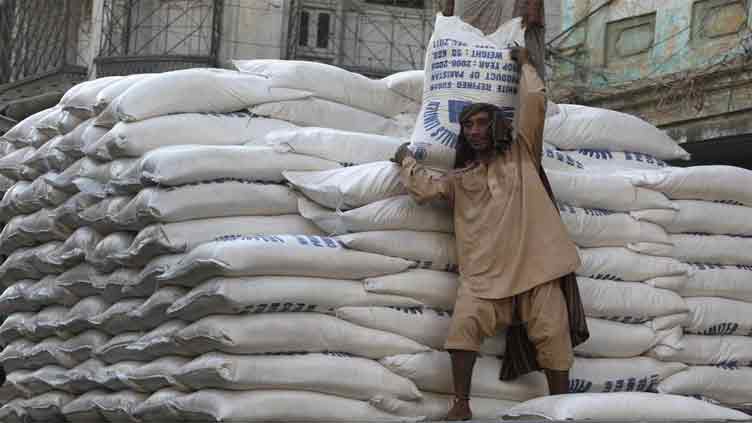Sugar price in Pakistan moves up despite official rate of Rs99 per kg

Business
It is an obvious result of hiking sugarcane price while not keeping end consumers in mind
LAHORE (Web Desk) – Although the federal government set the sugar retail price at Rs98.82 per kilogramme earlier in April this year, things have been moving in the opposite direction during the last three months as the sweetener is currently available in Rs140/kg against the previous level of Rs100/kg.
It's an alarming trend at two levels – firstly, it shows that the government is unable to perform its basic duty of price control and secondly, the inflation-hit people are being burdened further.
Just to recall, this rate was fixed by the Sugar Advisory Board (SAB) which falls under the Ministry of Food Security and Research.
This increase was expected after the Punjab and Sindh governments decided to jack up the sugarcane support price instead of providing assistance to the sugarcane farmers in the shape of subsidised inputs.
Hence, the trend of going for an attractive political move of escalating the agri produce’s support price [both sugarcane and wheat] is badly hurting the end consumers.
At the same time, jacking up the support price isn’t a solution for the farmers as well because under cultivation area for sugarcane is shrinking. The reason is that the cost of production is increasing while millers aren’t paying the price they have been promised by the government.
Some people suggest that sugar [also tea] is a luxury and an avoidable item for being unhealthy in nature. However, this statement is an exaggeration - representing a simplistic view - as it neglects the socioeconomic realities in Pakistan.
One can easily notice labourers consuming tea along with paratha/roti (bread) during work even in sizzling heat. Why? Because it provides the necessary energy given their daily income. In this way, it is part of their daily diet besides acting as a refreshment.
With a cup of tea being sold for Rs40 at roadside stalls along with paratha for Rs50 and roti for Rs15, they are already paying Rs55 to Rs90 in case they use tea in combination with anything.
So any further increase in sugar price may also fuel the tea rate besides making the bakery items more expensive.
The government needs to find a long-term solution as the sugar price in international market is expected to rise. Besides the surging cost of production due to inflation, there is another cause too – enhancing the production of biofuels by using sugarcane to fight climate change, making the sugar import more expensive.
For example, India – the world's second largest sugar producer and a major exporter in recent years – will likely have a smaller role in the sugar export market going forward as its government-led ethanol programme continues to expand.
Read more: India's ethanol programme will cap future sugar exports: BMI report
According to a report Asia Biofuel Outlook, produced by research firm BMI, a unit of Fitch Solutions, India's pursuit of increased ethanol blending in gasoline, as a way to cut the oil products' import bill and reduce carbon emissions, will continue to support global sugar prices.
BMI says that there is currently a fast development of additional capacity to produce ethanol in India, where the biofuel is made mainly from sugarcane.
As more ethanol plants start production, more of the country's sugarcane crop will be used to make the fuel, limiting the amount of sugar that will be produced.
Meanwhile, the US Department of Agriculture (USDA) says India's ethanol blending has reached 11.5 per cent, while the country's government target is to reach 20pc by 2025.

